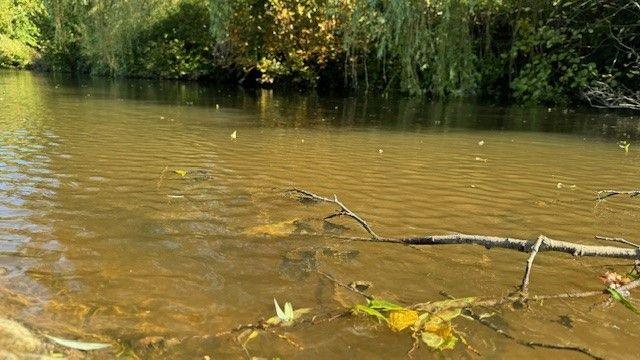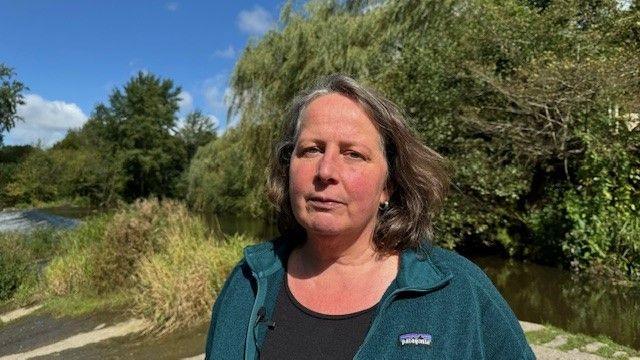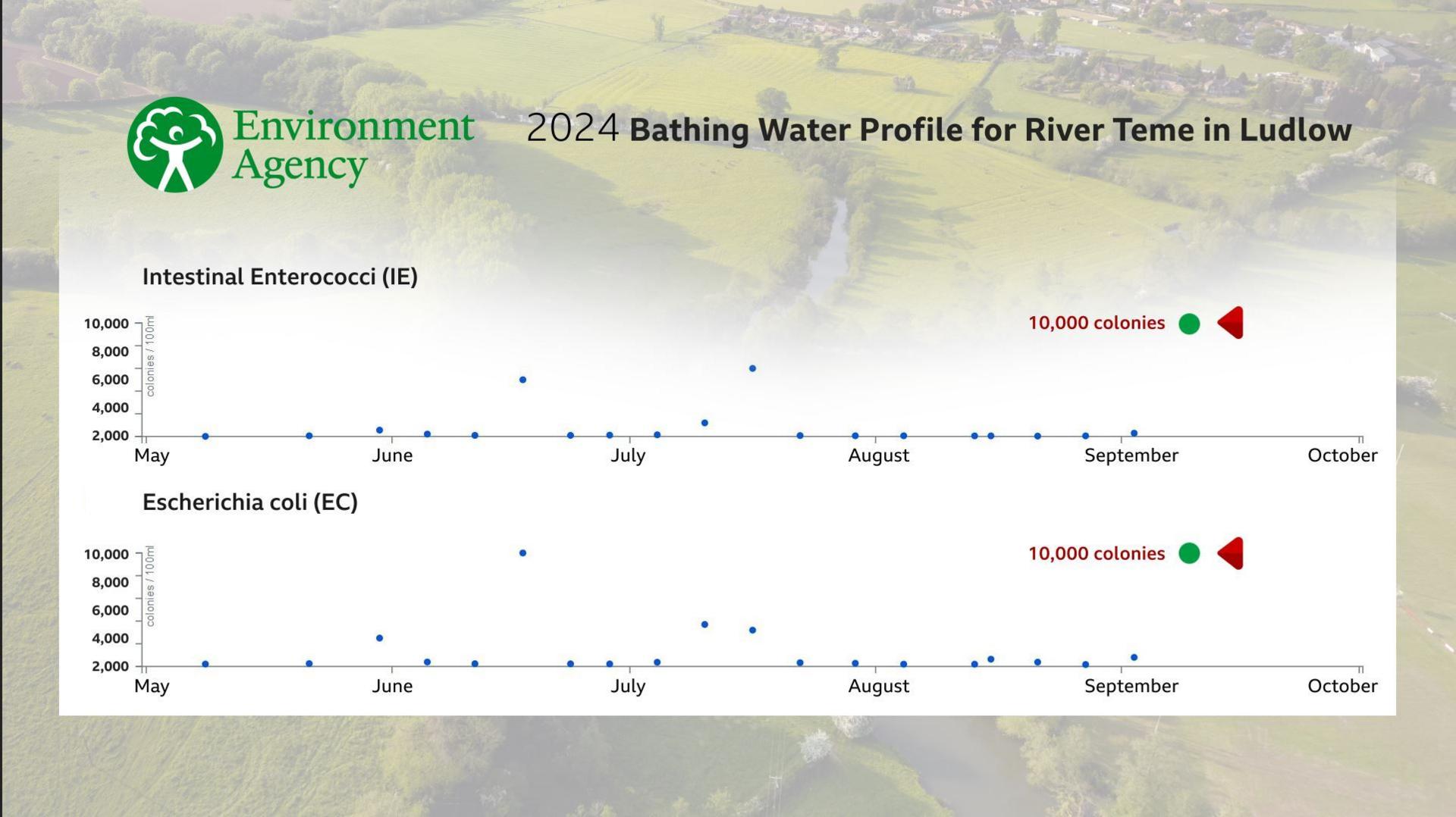River pollution near bathing site traced to farm

The River Teme in Ludlow was discoloured in October
- Published
An outbreak of pollution in a Shropshire river has been traced to a nearby farm.
People were advised to stay out of the River Teme in Ludlow in October after a local ranger was concerned that manure could be affecting the water quality.
The Environment Agency (EA) said it had issued the landowner with a warning letter and was working with them to stop any further pollution. The owner has been contacted by the BBC and did not wish to comment.
Earlier tests this year also found high levels of E. coli in the river which is a designated bathing site.

Alison Caffyn, a scientist and campaigner for clean water, said of the pollution: “It just makes your skin crawl”
“Swimming in the river really raises your spirits and makes you feel great,” said Alison Caffyn, a scientist and campaigner for clean water.
“To find out we were swimming in pollution last summer was awful, there could have been a risk of serious infection.”
“It makes me reluctant to go swimming again, despite the benefits I feel.”

Testing by the Environment Agency showed high levels of bacteria in the water
In May, a stretch of water in the town was given bathing water status by the government after a campaign by the Ludlow Bathing Waters Group.
The area at The Linney is now tested regularly by the EA to check it meets the clean water standards.
It is a popular location for swimmers, tourists and walkers but, in September, excessive levels of pollution were found in the River Teme.
The agency’s data showed high levels of bacteria such as E. coli.
These can be found in the guts of most animals, including humans, but can also cause illness in some circumstances.
The agency said the results could be due to the weather with the testing coinciding with the second wettest day for Shropshire on record “with 30ml of rainfall received in two hours".

The River Teme at Ludlow is a designated bathing site
In October, a volunteer ranger with the Severn Rivers Trust was concerned pollution from a nearby farm was entering the water.
The EA advised people not to swim and put up notices to prevent people from going into the water.
They’ve now traced the source to a farm at Priors Halton, upstream from the town.
“We have identified the source of the silage effluent pollution as a farm near Ludlow and worked closely with the landowner to quickly stop the pollution,” said an agency spokesperson.
“We have issued the landowner with a warning letter and provided them with advice on how to improve the infrastructure on their farm to reduce the likelihood of any future pollution incidents.”
The agency say that silage, a liquid caused by the fermentation of grass and other crops, does not usually contain E.coli.
It added members of the public should report any environmental incidents to its 24/7 hotline number., external
Related stories
- Published9 October 2024

- Published28 October 2024

- Published13 May 2024
